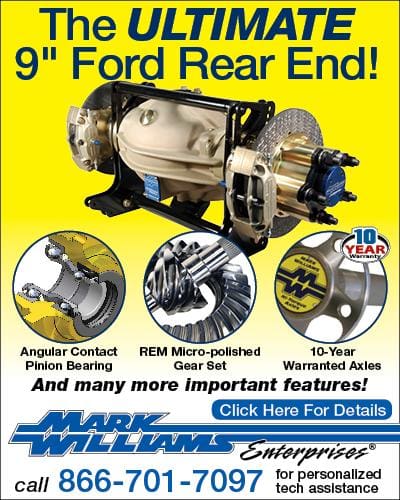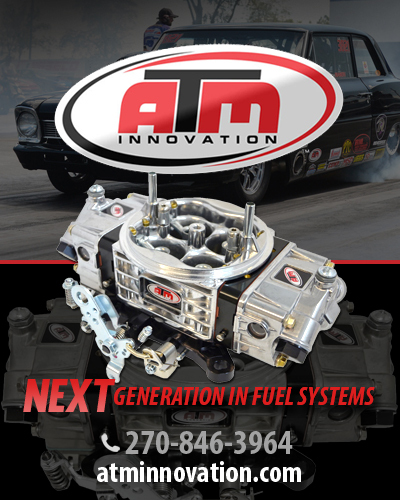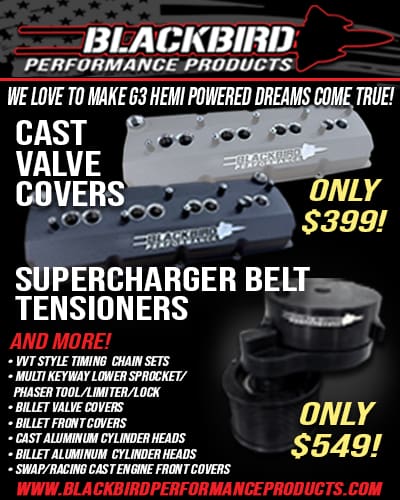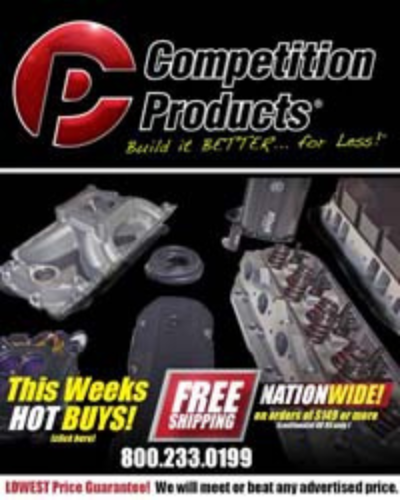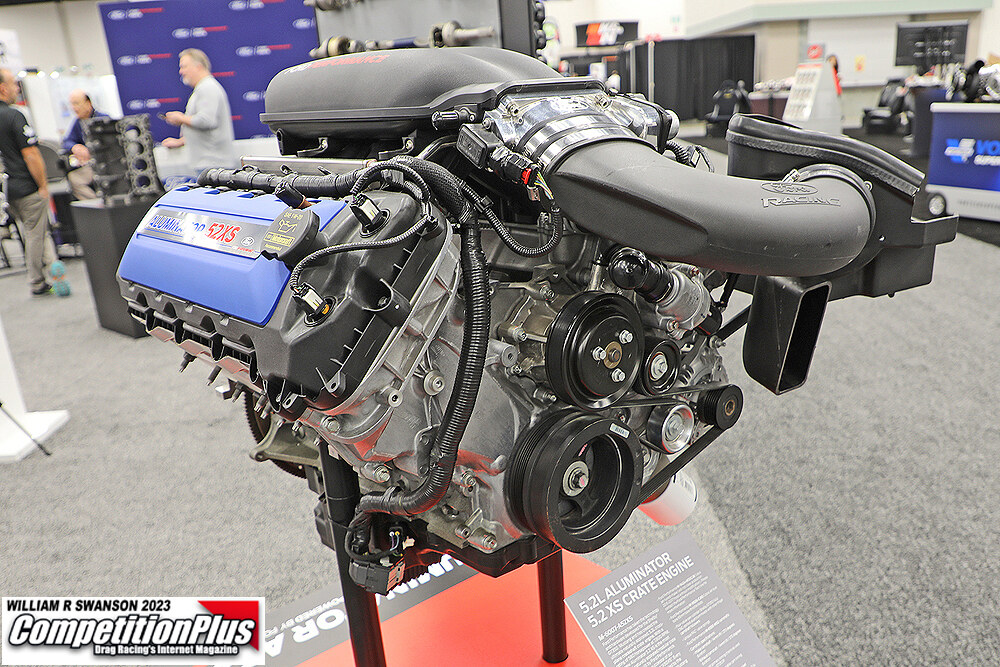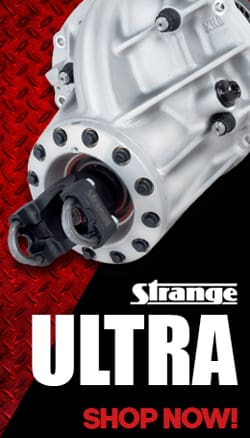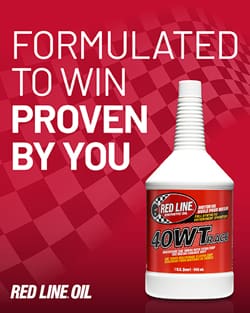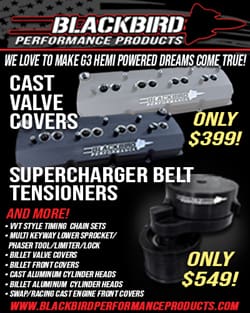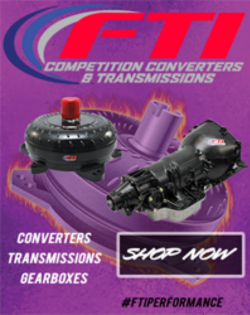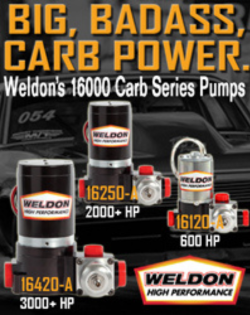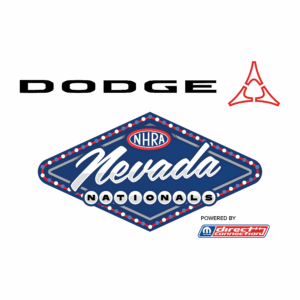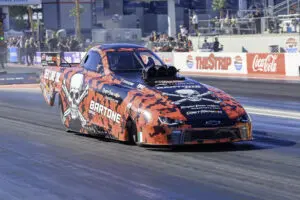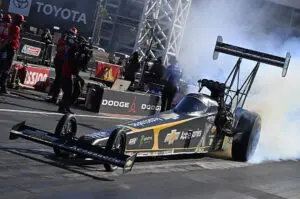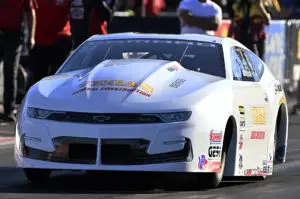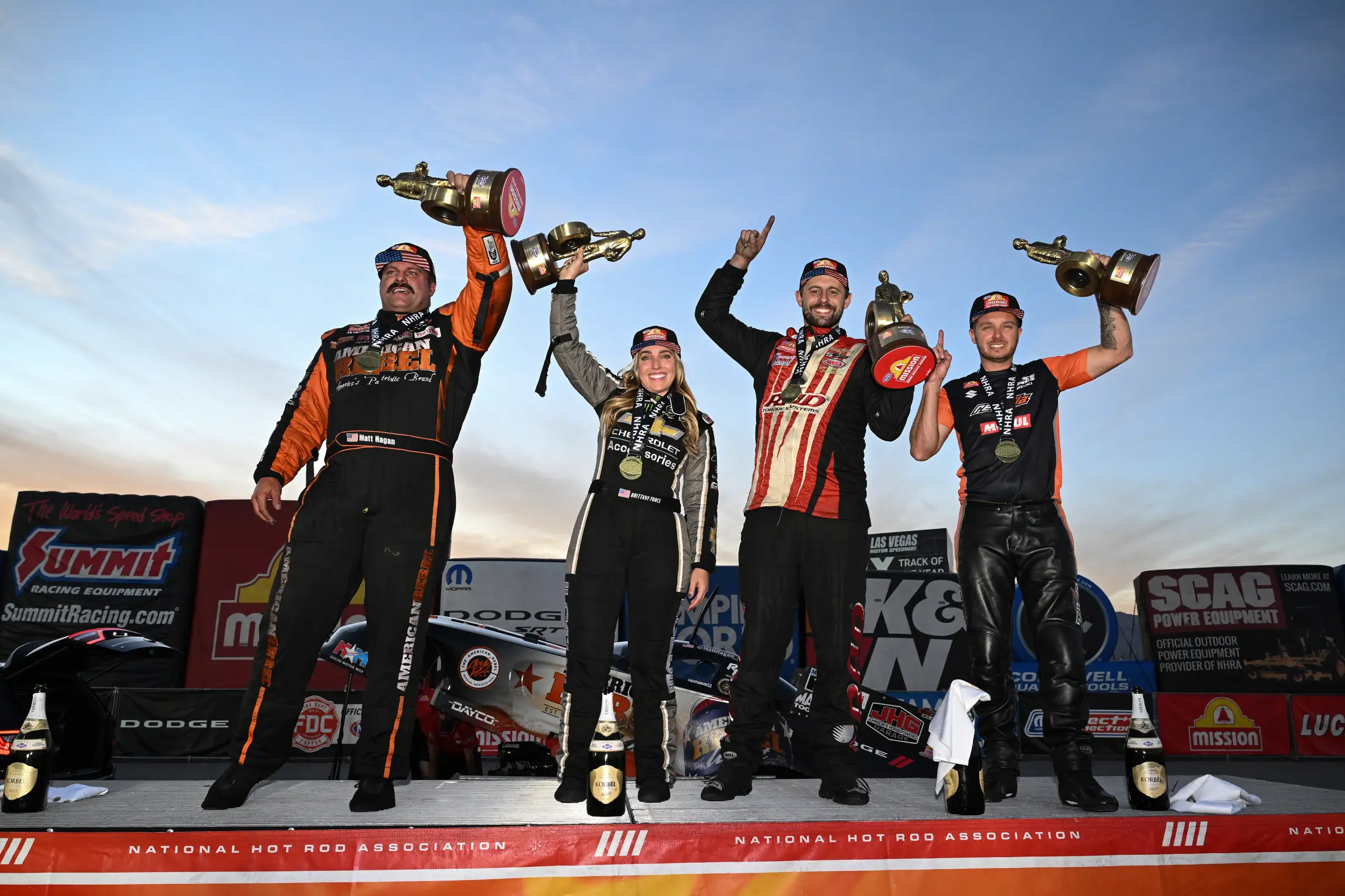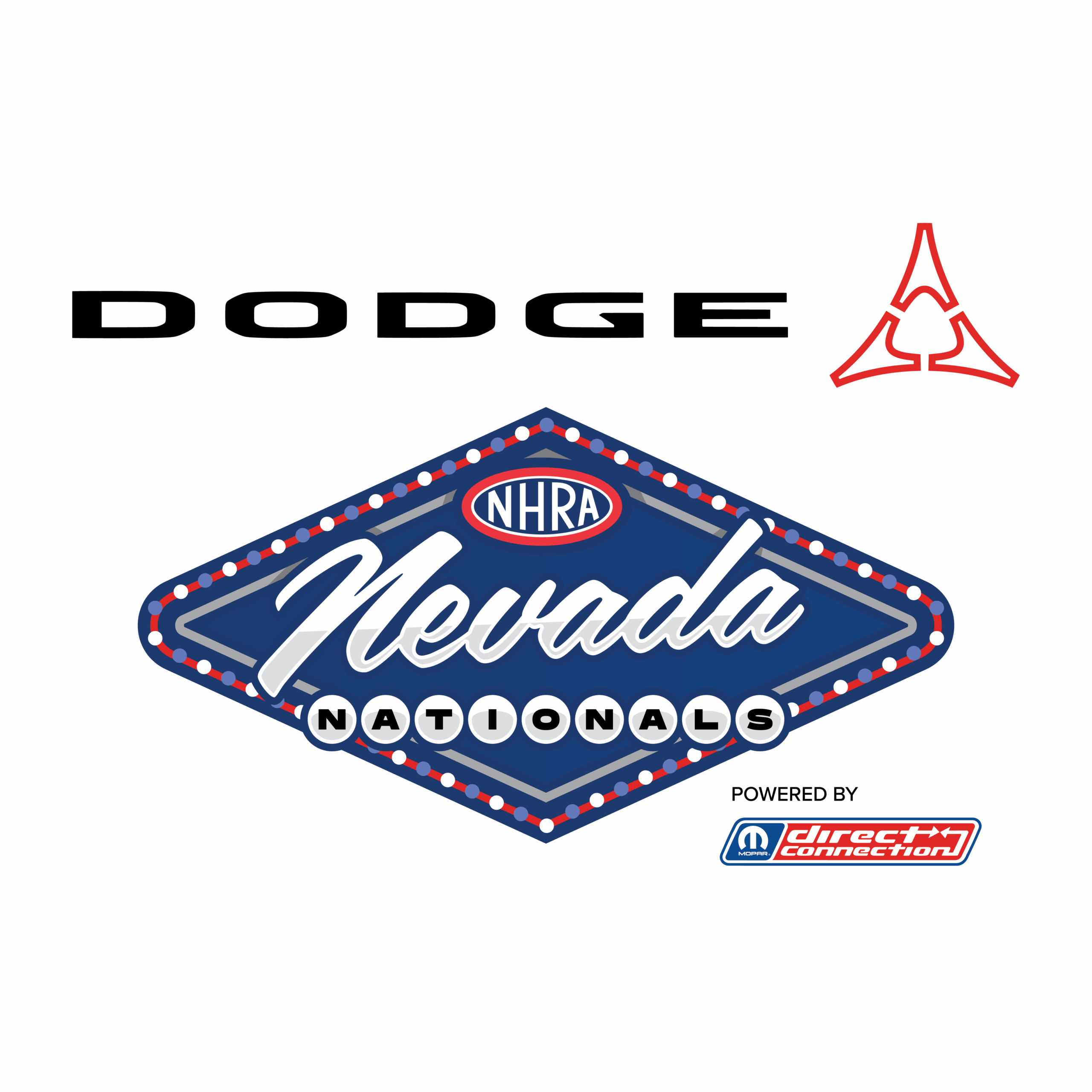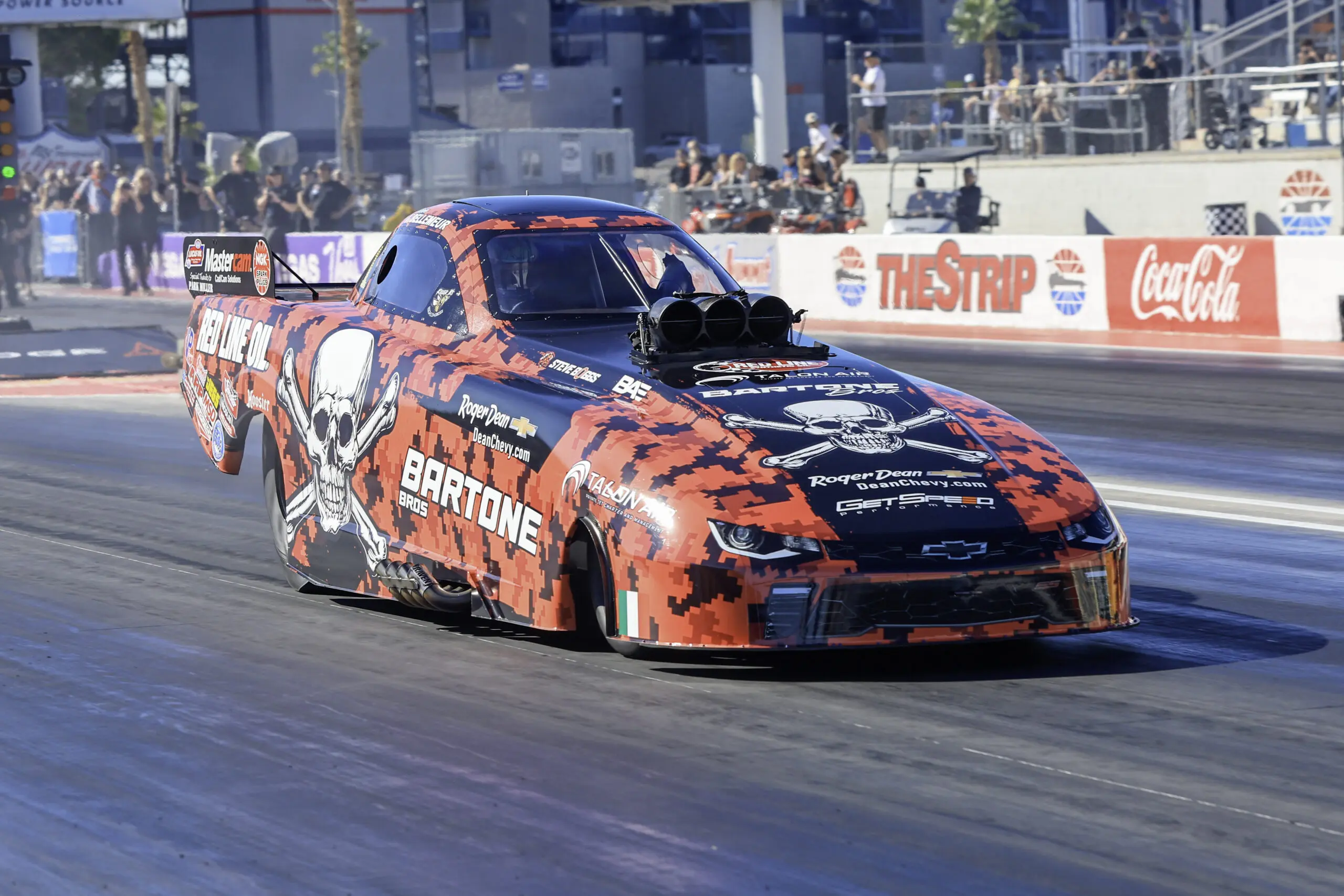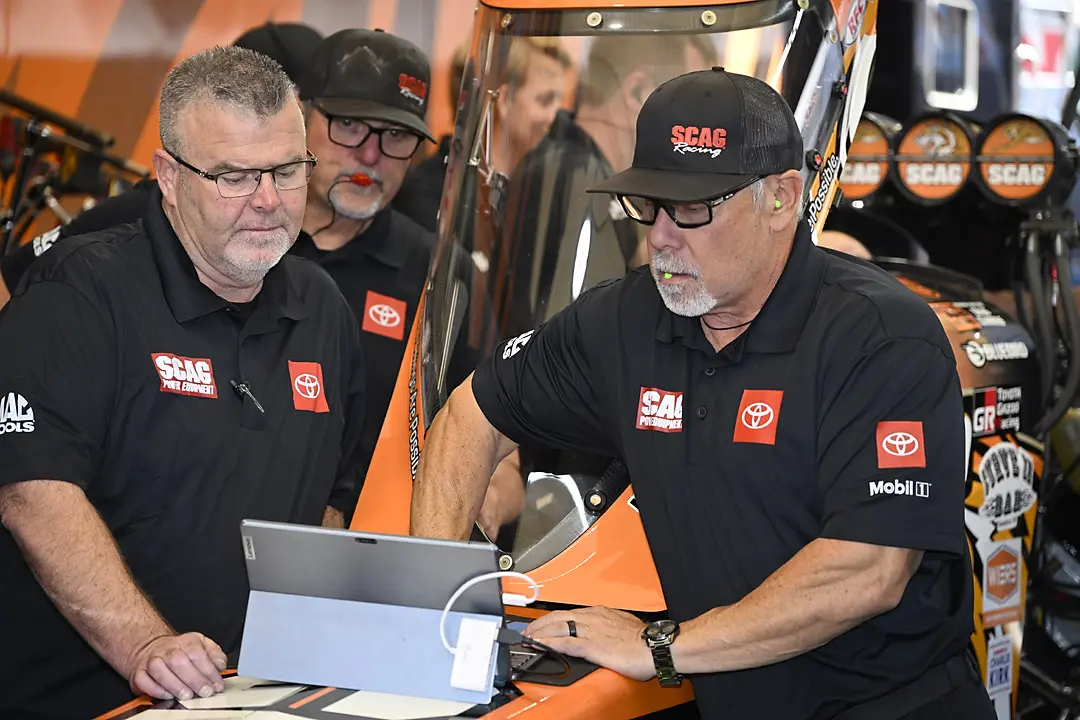RELATED ARTICLE: WHEN DRAG RACING NEEDED DON SCHUMACHER, HE DELIVERED
 Sunday’s announcement that iconic multi-car team owner icon Don Schumacher was selling primary interest in his last nitro team came as major news to the drag racing community. Though many interpreted Schumacher’s move as a retirement of sorts, the former Funny Car racer turned nitro mogul has been quick to lend clarification as needed.
Sunday’s announcement that iconic multi-car team owner icon Don Schumacher was selling primary interest in his last nitro team came as major news to the drag racing community. Though many interpreted Schumacher’s move as a retirement of sorts, the former Funny Car racer turned nitro mogul has been quick to lend clarification as needed.
Schumacher’s record as a team owner is impeccable, with 366 national event victories and 19 series championships.
CompetitionPlus.com Editor Bobby Bennett caught up with “The Don” to touch on a few important subjects to the drag racing community.
BOBBY BENNETT: Don, you announced on Sunday that you’re not stepping away from drag racing. You’re still going to be involved. But how hard was it to give up the majority interest in your Top Fuel team?
DON SCHUMACHER: Well, my whole career, when I came back in ’98, I have done what I feel is the right thing for my sponsors, for the fans, my employees and NHRA. And my sponsor, Joe and Kathy Maynard, really wanted to own a Top Fuel team. And I did what I felt was the right thing to do to accomplish what their dream and what their goal is.
BB: Do you ever see yourself returning with another fuel team, or was this just the final piece of the puzzle of downsizing to where you could enjoy a well-earned retirement?
DS: Business is business, and if I have the ability business-wise to bring out another fuel team, whether it be Top Fuel or Funny Car, I will certainly do that. So I’m not stepping away from the sport or just going off into the sunset and doing other things. I mean, I currently do a lot of other things besides just NHRA drag racing. We make a lot of components there at DSR Performance Parts for the aerospace industry, the fishing industry, the defense industry, and also the motorsports industry. We look to continue to build upon that and build upon our current 1150 horsepower crate motor program. We look to continue going forward and doing the right thing business-wise, which would include bringing out another Top Fuel or Funny Car team.
 BB – You still supply a good number of teams out there through your Don Schumacher Racing Performance Parts …
BB – You still supply a good number of teams out there through your Don Schumacher Racing Performance Parts …
DS – Yes, we do supply a lot of teams out there with a lot of different parts that are used in the nitro motors currently, and we look to continue that and hopefully continue to expand upon that.
BB: You still hold a vital role in the sport. I mean, you just kind of changed positions within the program. But does it mean a lot to you to still be important in the business of drag racing?
DS: I’ve never considered myself important in anything except my family’s life. So I certainly look to continue business and the sport of NHRA drag racing and do the right thing for my employees, the fans, the sponsors, and NHRA in whatever role I can play. But I’ve never considered myself important anywhere except in my own family.
BB: I know you’re very content to work behind the scenes now, but it’s kind of hard to do that once you look at what you’ve accomplished and see how you have made a pretty significant impact on drag racing. When somebody points that out to you, how does that make you feel?
DS: It kind of overwhelms me that that has transpired people feel that way about me. I know I’ve been blessed to have the employees, the team members, the drivers, the sponsors, and the wherewithal to accomplish the great things that DSR has been able to accomplish. But it was never a goal when I came into NHRA drag racing or when I came back in ’98 to ever win an NHRA national meet. It was a hope, but it was never something that I ever expected to have accomplished. What the teams that I put together have accomplished is really kind of overwhelming to me.
 BB: One of the things that I don’t think that a lot of people realize, and I was going back and watching your Legends: The Series episode that we did some years back about how it was your dad who pushed you to expand, even when you were doing match racing. Well, if you got enough to run two cars, why don’t you run two? Well, you got enough to run two; why not three? And how much of that influence did you carry over into Don Schumacher Racing?
BB: One of the things that I don’t think that a lot of people realize, and I was going back and watching your Legends: The Series episode that we did some years back about how it was your dad who pushed you to expand, even when you were doing match racing. Well, if you got enough to run two cars, why don’t you run two? Well, you got enough to run two; why not three? And how much of that influence did you carry over into Don Schumacher Racing?
DS: As my father stepped away from business and I stepped into Schumacher Electric and tried to take the things that he pointed out to me when I was young and doing different things, I tried to just continue to work in that vein. It was a very difficult transition to step away from racing [in late 1974] and go into the corporate world. But once I made the corporate world a competition, it was very easy for me to continue to work, grow the business and do the right things for, again, the company, my employees, my family, and customers. So that’s really been my goal in all of the businesses that I’ve been in and the business that I’m currently still in.
BB: When you came back with Tony with one team in ’99 and won, what did you think? What was going through your mind when you won that championship under the DSR umbrella?
DS: Boy, I certainly made the right decisions in hiring the right crew chief, and the right crew, and Dan Olson and the team that we put at the end of ’98 to go forward and win the championship in ’99. Never imagined being able to do anything like that. And in ’99, we only won one race out of the whole season, but we were a very consistent car and went a lot of rounds every weekend.
It was, again, something that I never imagined we could accomplish. And being able to accomplish that for a sponsor Exide, which the people that I dealt with and putting the program together were really exiting Exide Batteries because of different reasons; it was a very different transition in 2000. And then the Army came aboard. It’s been a remarkable run with remarkable employees and sponsors that I’ve been able to be very successful in the sport, but it was because of the employees and the sponsors. It wasn’t anything that really shone a light on myself.
 BB: You probably had no idea you were setting the stage for the future of the way sponsorships worked in drag racing with the business-to-business, bringing Exide in with your success with Schumacher Electric. Would that be an accurate statement?
BB: You probably had no idea you were setting the stage for the future of the way sponsorships worked in drag racing with the business-to-business, bringing Exide in with your success with Schumacher Electric. Would that be an accurate statement?
DS:That’s very, very accurate. But I knew from the beginning, you couldn’t sell a sponsorship just based off of you’re going to see your name on a race car in front of all of these fans and on TV, and that’s what you’re paying me to do. I knew that we had to do more. We had to do business for the sponsor, for the sponsor to want to be involved and to stay involved. And that was also part of why I pushed hospitality as hard as I did. But business-to-business is a thing that will keep the sport going forward today into the future.
BB: You did watch a couple of your teams, several of your teams go off and start their own teams thanks to the foundation you established. That had to be a sense of pride that that could happen.
DS:I’m very proud that I was able to supply the foundation to the drivers; Tony Stewart, Antron Brown, and Ron Capps, to be able to go off and create teams to be able to compete at the highest level in NHRA drag racing. I feel very good that I’ve been able to supply them with the foundation that has allowed them to go off and do this.
Maybe the future of the sport is single-car teams, or much less than what the mega teams, myself, and Kalitta and Force have done over the years with at one time. I think I had 11 or 12 teams out there at some of the races between Top Fuel, Funny Car, Pro Stock, and Pro Stock Motorcycle. So it’s a different era today, and I’m happy I was able to assist those owners and starting to go in another direction.
BB: There was a good many fans that talked about the ills of the multi-car teams. And you certainly weren’t the only one out there with a multi-car team. There was Kalitta; there was Force. But do you think those race fans will ever truly understand that the racers that they love and adore were able to keep on racing out there, and eventually, some of them go off on their own teams because of your insistence on growing DSR?
DS:I’ve just never had that be something that concerned me. There’s fans that don’t like things that you do, and there’s fans that love things that you do. And that goes in any arena in a public arena that you put yourself in. If you try to focus in on the ones that are not happy with you and not continue in the direction that you feel is the right direction, I think it kind of diverts your attention and causes you to not accomplish what you certainly could accomplish.
So worrying about the fans that felt the mega team that I created, the multi-car team was a mistake for the sport; I believe the sport and everybody looks upon things in different ways. I am happy I was able to do that. I believe it was a positive for NHRA drag racing. It caused a lot of competition to be out there. I had different sponsors on the cars and different crew chiefs and drivers that had their own passion. And that’s the way I ran my teams. I ran them as individual teams, even though they were all under the ownership of DSR.
 BB: I’ve known for a while that you wanted to kind of step back and start scaling back, but when that started happening with these teams going off to do their own, was there a sense of, “am I ready to do this? Do I want to do this?” Was there any second-guessing, or did you just know that it was time?
BB: I’ve known for a while that you wanted to kind of step back and start scaling back, but when that started happening with these teams going off to do their own, was there a sense of, “am I ready to do this? Do I want to do this?” Was there any second-guessing, or did you just know that it was time?
DS: I think you always second-guess yourself with major transitions like that. I had to think long and hard about it and decided it was the right thing to do. And that’s what I went forward and accomplished, and I’m happy I did.
BB: Do you feel like, without all your teams out there, you’ll still have the same passion for drag racing that you had when you were running at full load?
DS: Bobby, I’m 77 years old today, and I certainly don’t have the passion and the fire inside of me that I had when I was 50 years old. So it’s a different day today. And I look forward to continuing in the sport and going forward for NHRA drag racing, and DSR Performance Parts, and DSR. I still own part of the team, so I look to continue to go forward with that team and continue to look to see if I can bring another team out.
BB: Was retaining that minority position in the team your way of saying I’m not completely ready to step away?
DS: It was my way of continuing on in the sport. I’m not ready to step away from anything.
So that was never a thought of mine to step away from the sport. I mean, I have three factory shootout teams. We currently make a lot of parts for the motorsports industry, the defense industry, the aerospace industry, and the fishing industry. I look to continue to grow in all of those areas.
BB: I find it peculiar that all those industries that you’re in are industries that you absolutely love, like fishing and flying.
DS: That is true. I do. And I think it’s important that you try to do things that you love to do because that causes you to put in the extra effort, the extra hours to be successful. And that’s kind of been my motto is work longer and harder than the competition, and you’ll be successful. And I believe that today, as I’ve always felt about it.










